As part of Truth and Reconciliation Day, The First Peoples Justice Centre of Tiohtià:ke/Montreal is organizing a unifying event to mark this important day (BBQ, music/drums…). The Centre for Services in Restorative Justice (CSJR) is pleased to collaborate this year, participating in a talking circle led by an indigenous elder.
Course
To contribute to the BBQ, we invite you to:
Details :
We were delighted to welcome Michael Lapsley, founder of the Healing Memories workshop, to Quebec from March 20 to 30, 2024, as part of an international visit to North America.
Please read this article to learn more about Michael Lapsley’s life story.

Fresh from South Africa, Michael Lapsley and his accompanier Philani Dlamini, were invited to meet the CSJR Board of Directors and permanent team on Thursday, March 21. A warm aperitif dinner to get to know each other better and celebrate our partnership since 2016 was organized.
On Friday March 22, we headed for Trois-Rivières to prepare the first Quebec edition of the Phase II Memory Healing workshop. Michael Lapsley provided training for the facilitators, who were happy to deepen their knowledge based on the experience of facilitating the Phase I workshop.
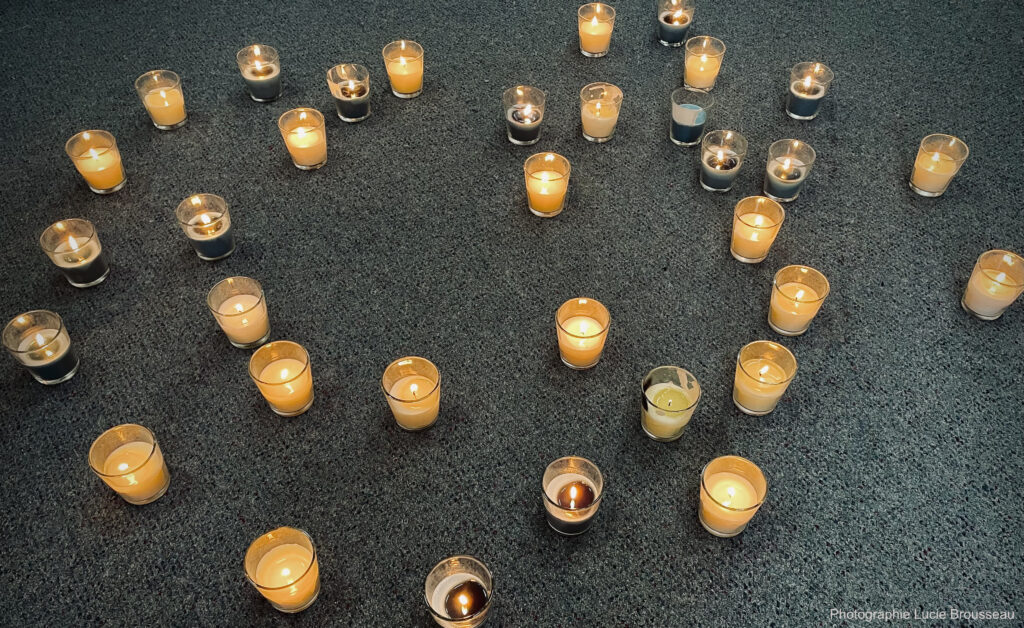





On Saturday March 23, we welcomed 35 people from all over Quebec to our Phase II workshop. Open to those who had attended one of our last 12 Phase I workshops, this one quickly sold out. Its theme: What to do with anger? How to overcome hatred? How to deal with forgiveness ? Etc. It aimed to continue the personal journey that had begun during the Phase I workshop. Michael Lapsley said it was the largest Phase II workshop ever organized around the world. Participants and facilitators were happy to see each other again.
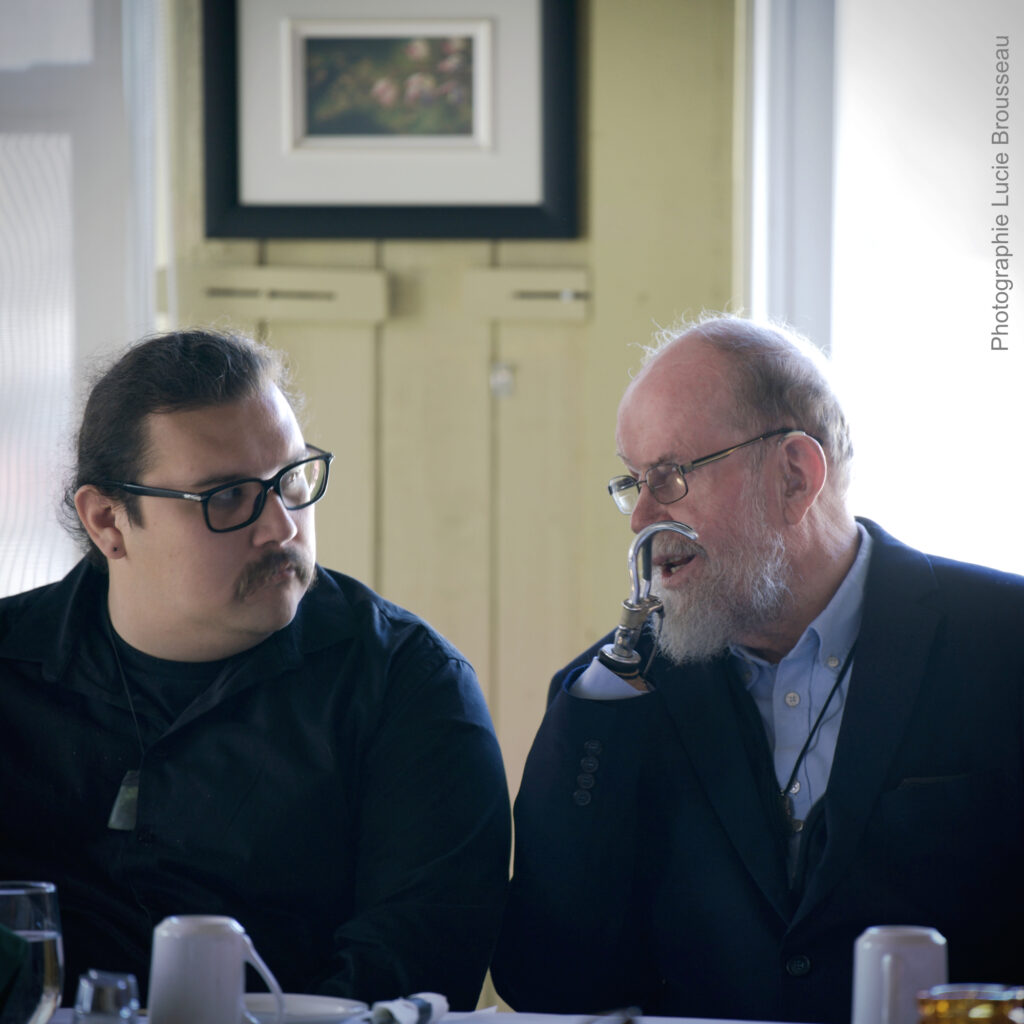
On Sunday, March 24, the CSJR collaborated with the Manawan community and invited chef Sipi Flamand and some 15 community leaders to brunch. Michael’s history and experience in South Africa helped put the issues faced here into perspective.
Brian Bronfman of the Network for Peace and Social Harmony and Amal Elsana of PLEDJ – Canada (Promoting Leadership for Empowerment, Development, and Justice) were interested in meeting Michael Lapsley and learning more about the Healing of Memories workshops as part of their project entitled “Dialogues of Solidarity: Strengthening our Common Spaces in Times of Conflict“. This encounter led to several Jewish and Muslim leaders meeting on March 25. A frank exchange on existing tensions in Quebec and the importance of creating spaces for “courageous, non-violent conversations.” A project to follow.
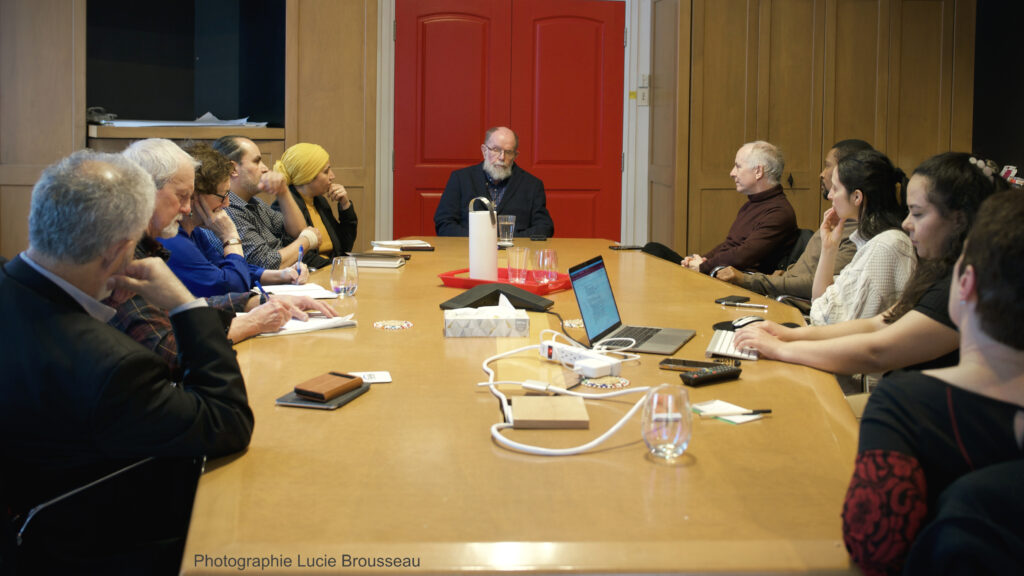

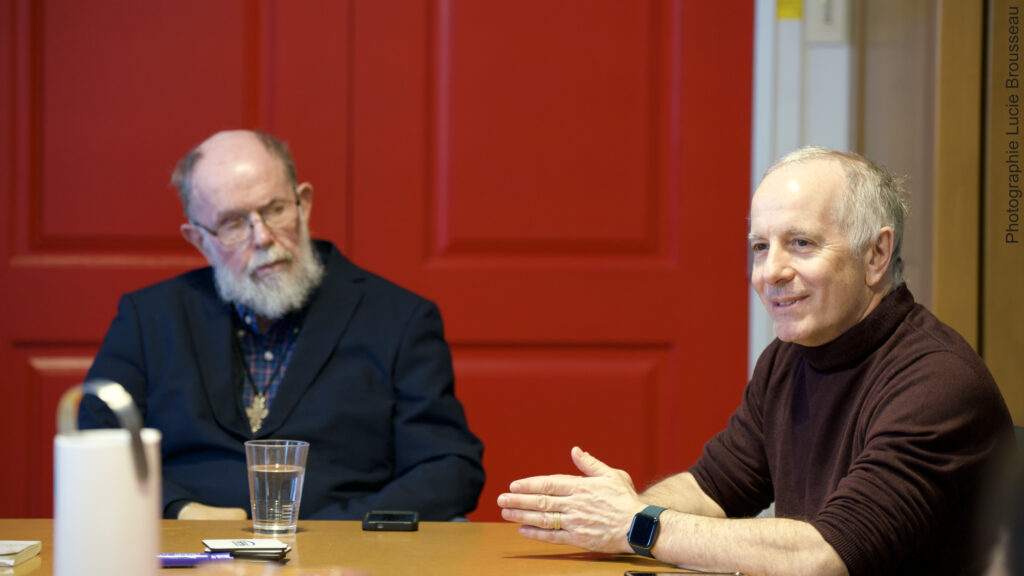
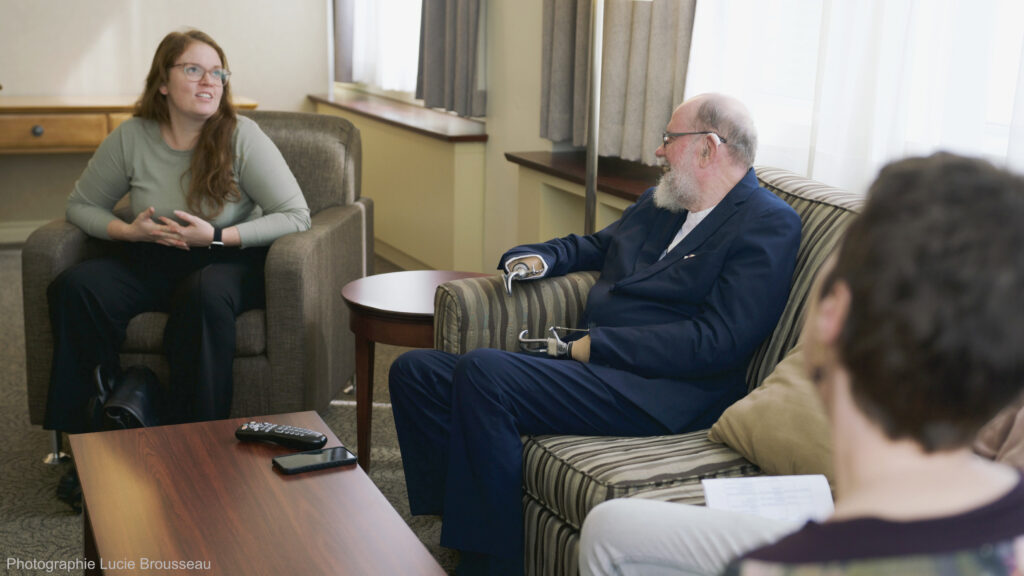
On Tuesday, March 26, Michael Lapsley and the CSJR met with Lauréanne Fontaine and William Daibhid Fraser, the Ville de Montréal’s Aboriginal Relations Officers. It was a most rewarding informal exchange.
In the evening, the main event of Michael Lapsley’s visit took place: a captivating public evening on the theme “Guérir du passé / Redeeming the past,” with the participation of Michael Lapsley and Mohawk Elder Tom Dearhouse.
We were fortunate enough to be hosted in the magnificent space of the First Peoples Justice Center of Montreal, a wonderful partnership for which we are grateful. We savoured Chef Swaneige’s delicious buffet of First Nations dishes. Thank you to Rose-Anne Gosselin, facilitator for the Healing Memories workshops, who animated the evening with brio and gentleness.
The two men shared their life stories, which coincided in many ways. Their testimonies clearly demonstrated how overcoming personal hardship can be metamorphosed into social commitment.
Following this exchange, we were treated to the magnificent traditional Indigenous song and dance of Owen Skahionwiio Mayo and Kwena Boivin. We were particularly moved by their heartfelt and instructive performances. The evening ended on a high note with a superb intertribal dance and peace pipe ceremony hosted by Tom Dearhouse.
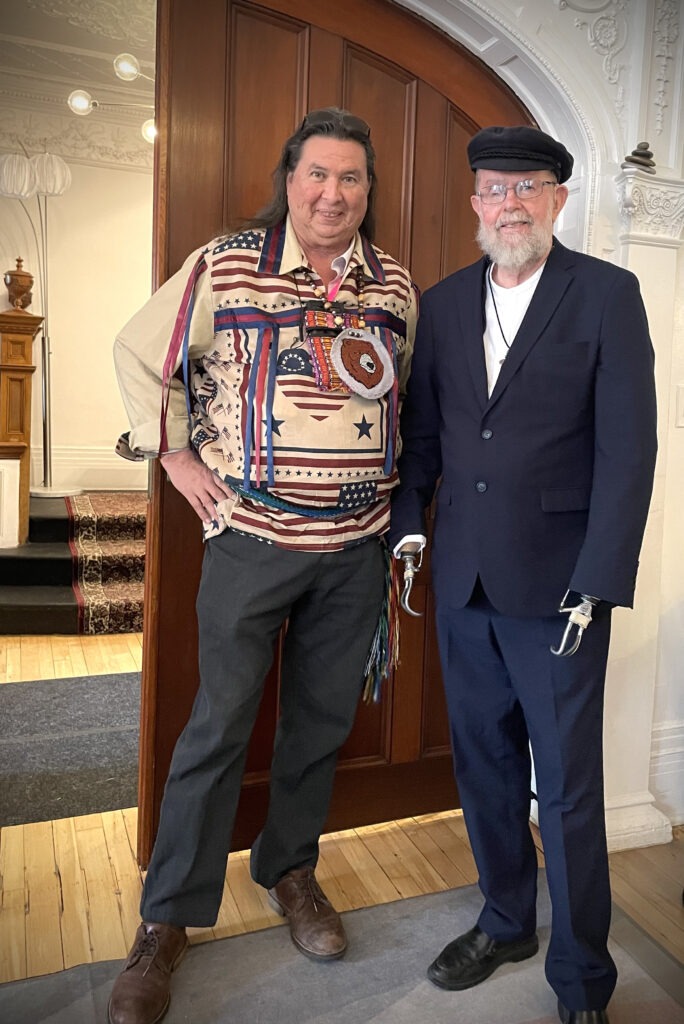
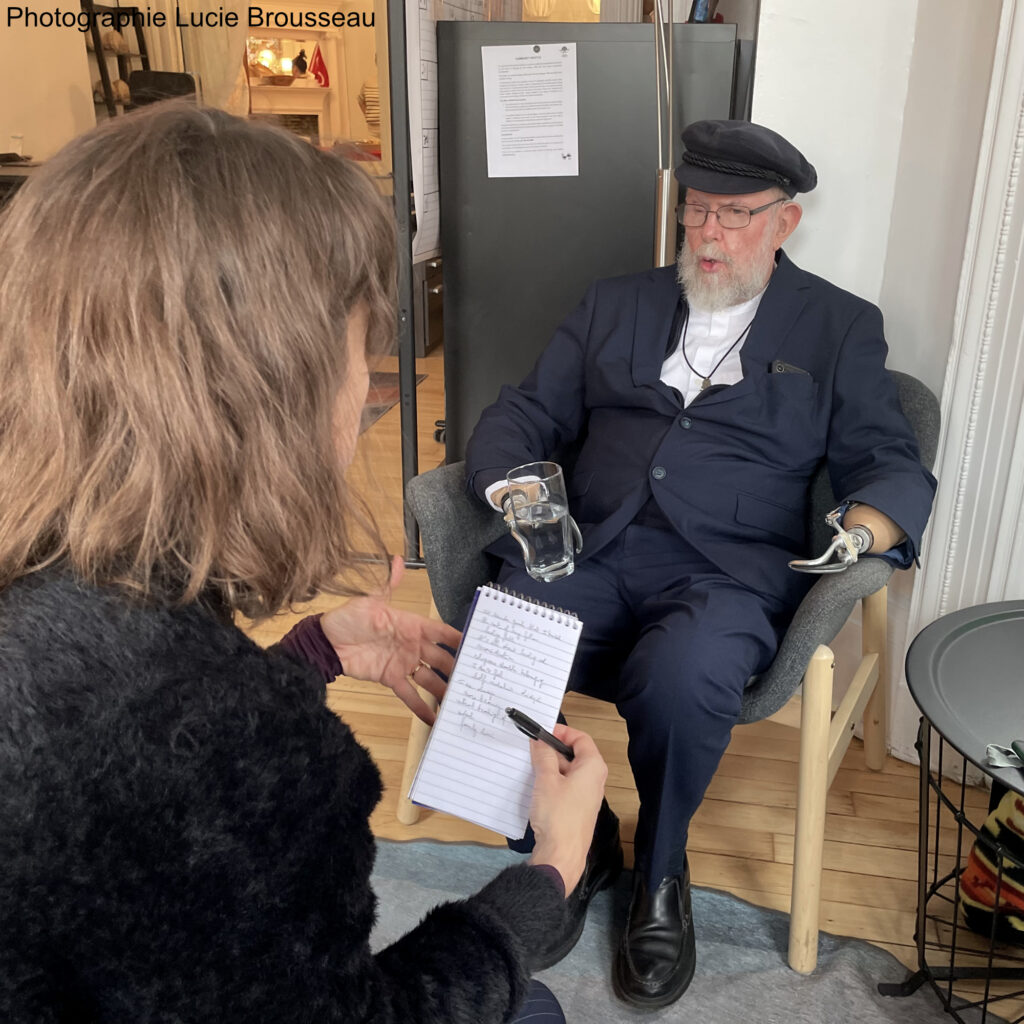

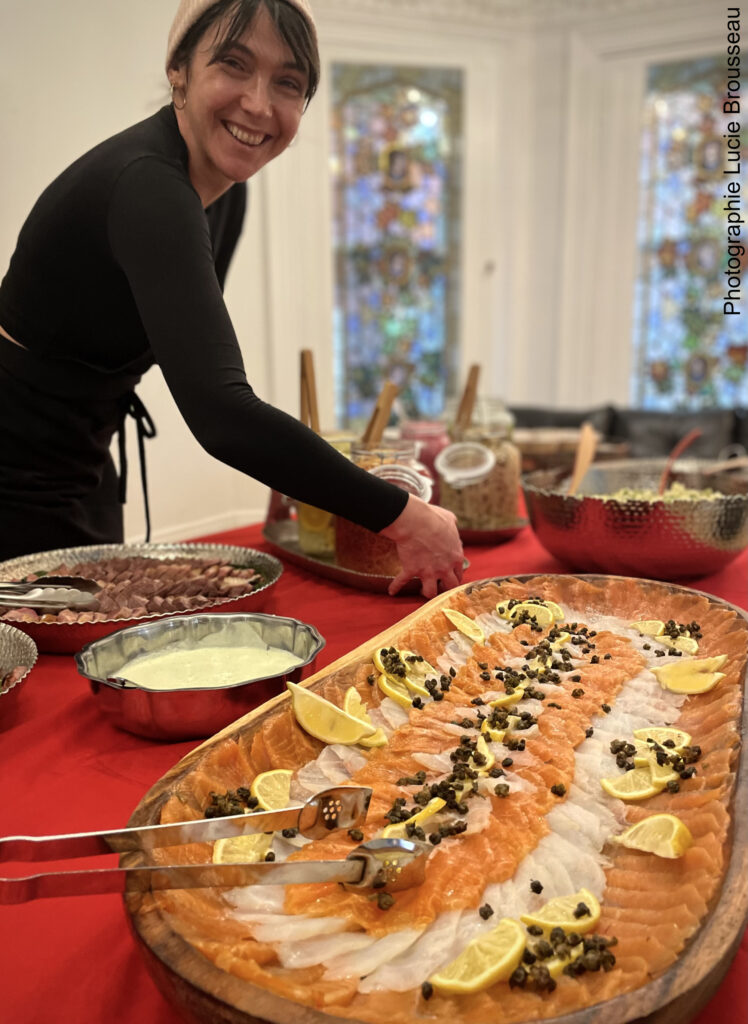
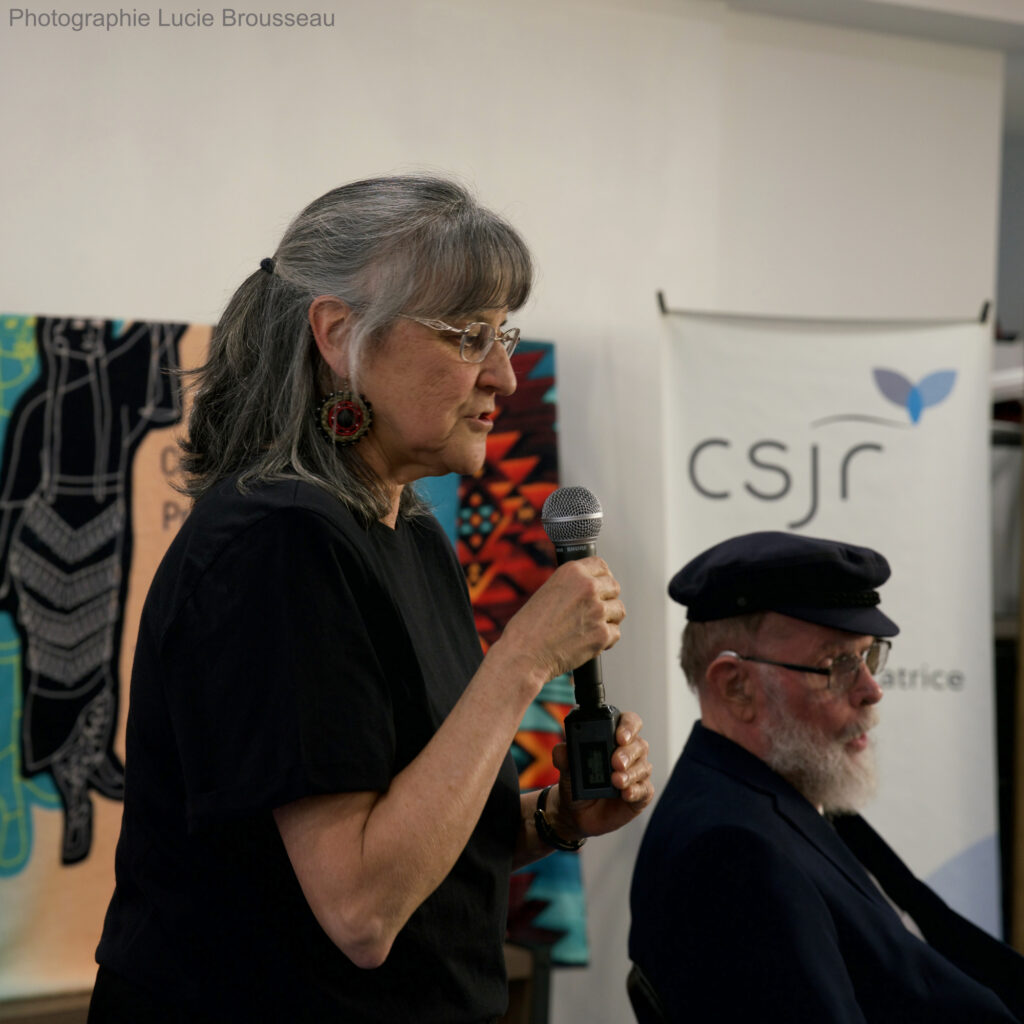

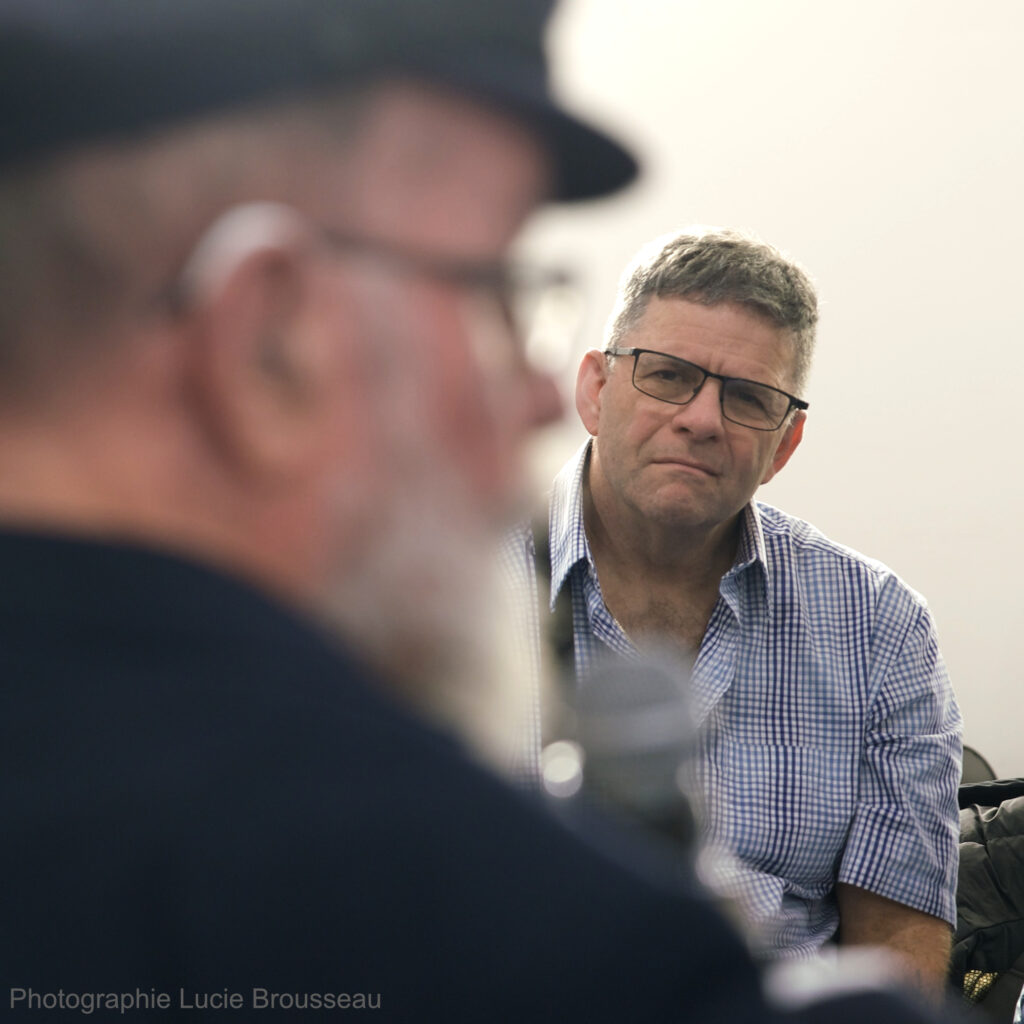
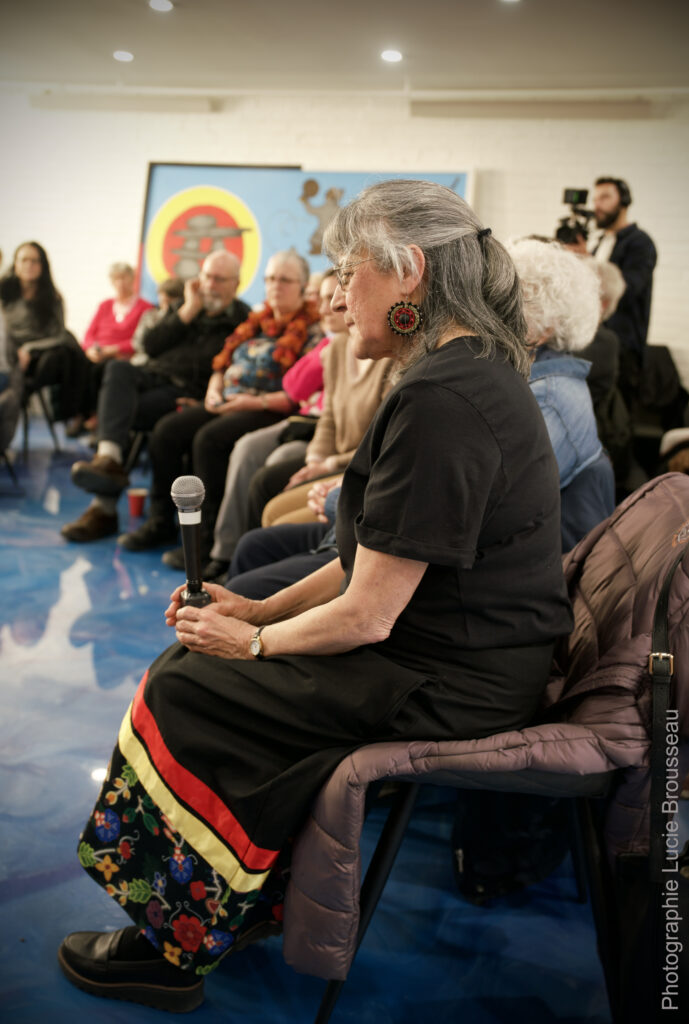

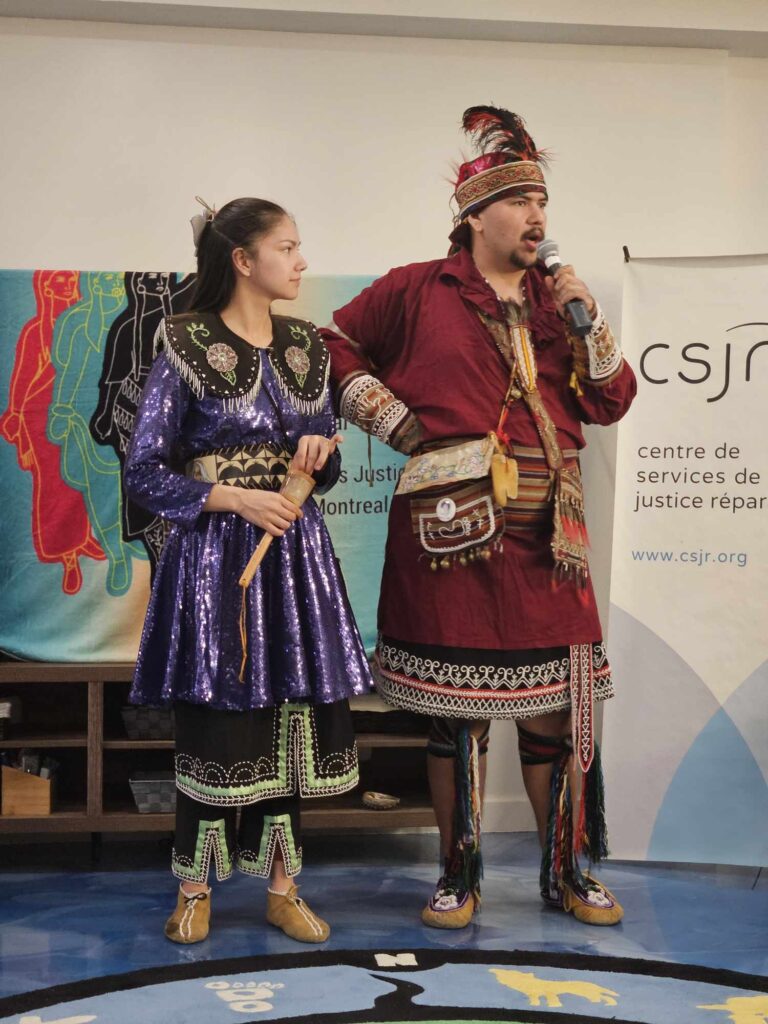
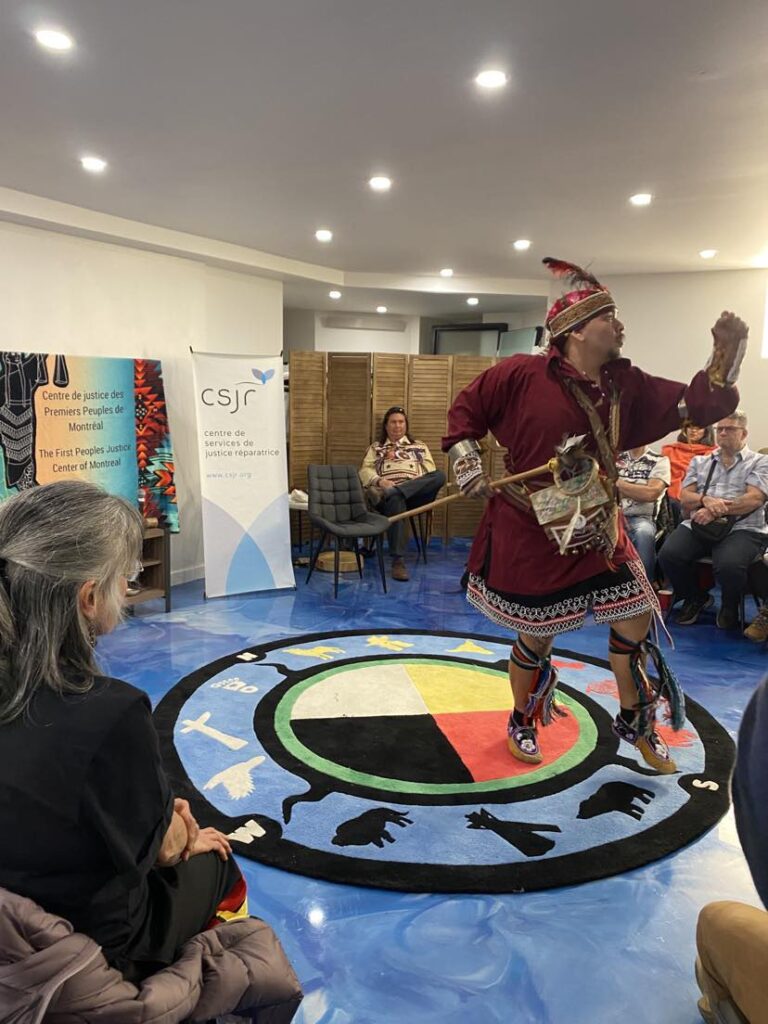
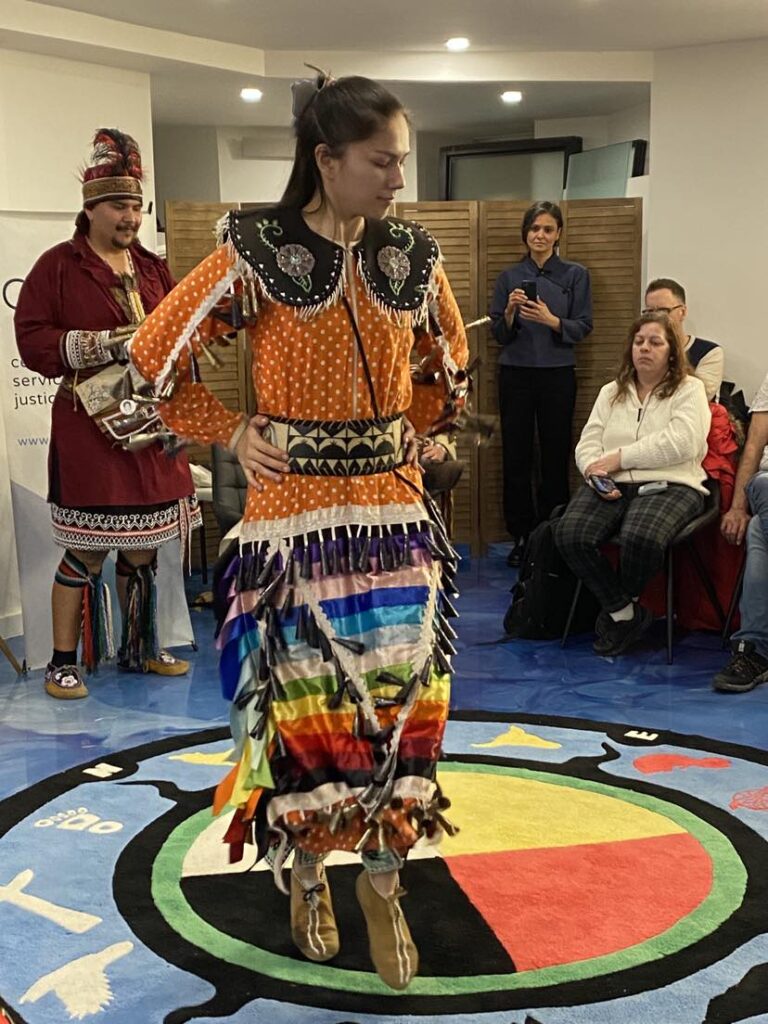
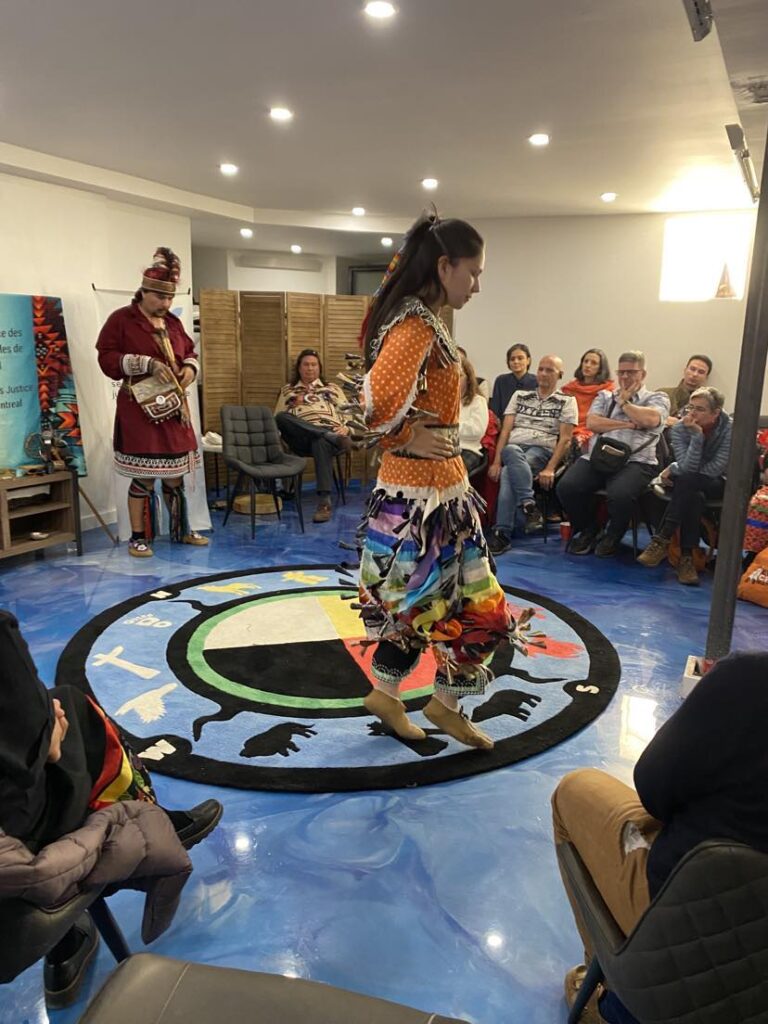
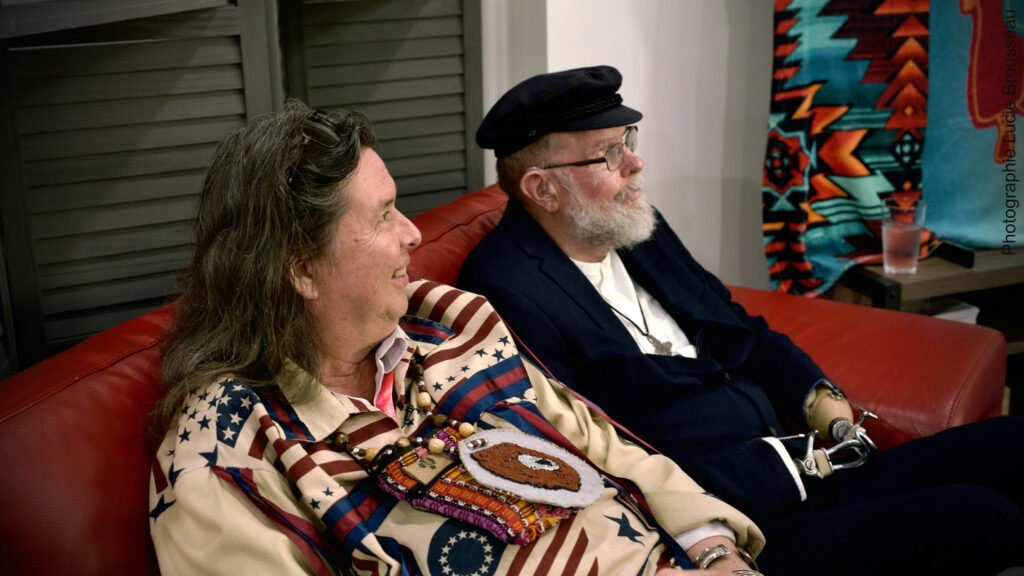
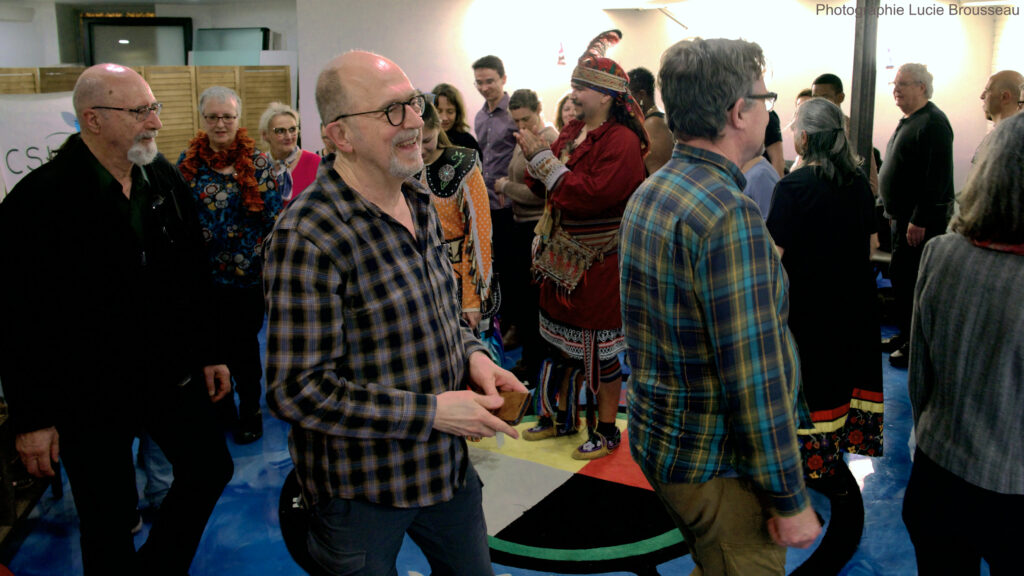
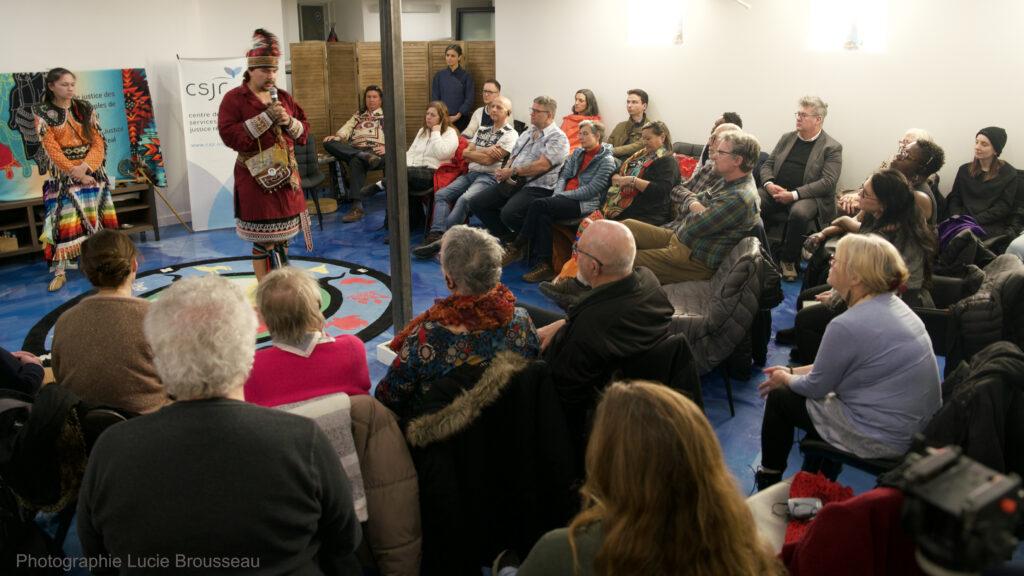
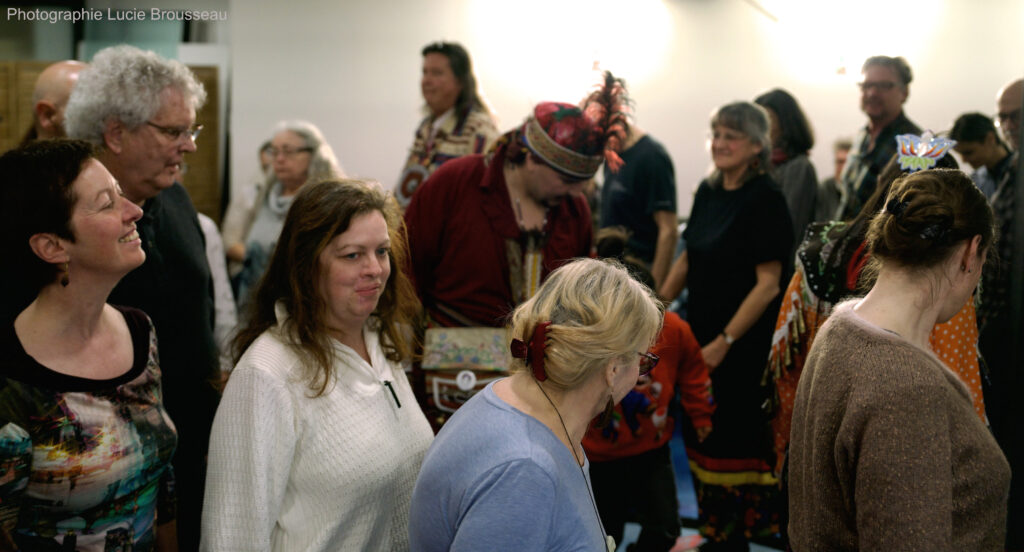
Amélie Mouton, a journalist with Radio-Canada Espaces autochtones, attended the event. Read her article here.
Discover the evening’s discussions and lessons in the video below:
On Wednesday, March 27, Michael Lapsley met with a dozen students from the Building 21 community, a multidisciplinary research institute at McGill University. The meeting, organized by Carole Graveline, enabled the students to learn more about the healing process proposed by Michael Laspley and to place it in both an individual and a collective context. The students were touched by this encounter and appreciated the human exchange that took place in this university setting. Their curiosity and interest in the Memory Healing approach and Michael’s journey were palpable.

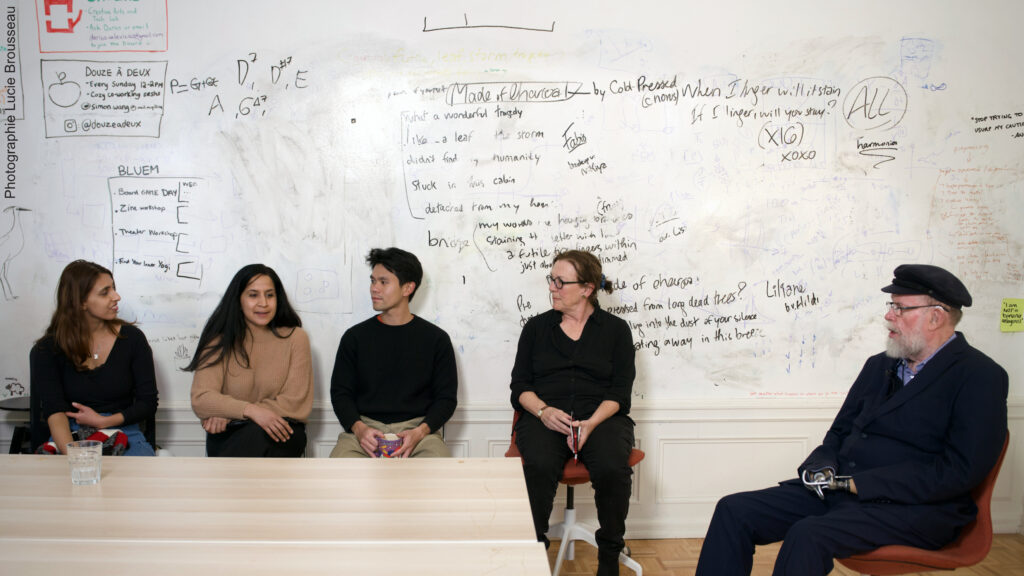
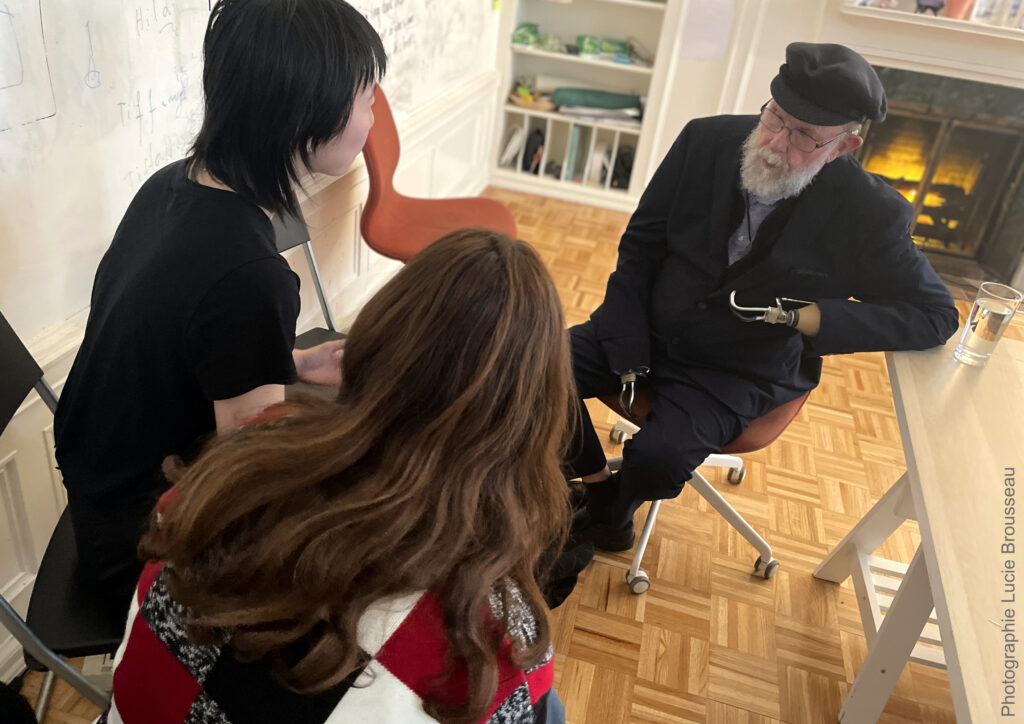
On Thursday, March 28, Michael Lapsley and several members of the CSJR team were invited by the community of Waseskun, an indigenous Healing Centre for rehabilitating indigenous men.
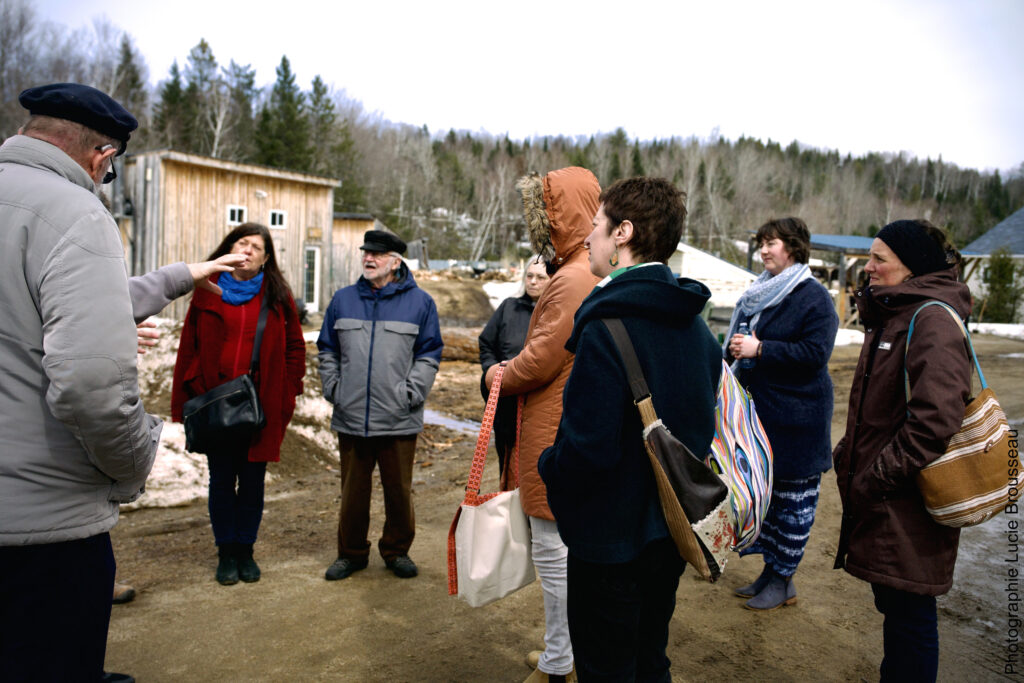


It was a privilege to take part in 2 talking circles with Mohawk Elder Bryan Deer and 35 native men who reside at the center. Indigenous women were also present, some working with the correctional service and others with the Missinak organization in Quebec City. We received wonderful testimonials from residents who appreciate the feeling of being part of a family in this unique place in Quebec and whose teachings are close to their cultures. After dinner, a resident offered a tour of this living space, which enables them to heal through various indigenous ceremonies.
The in-depth exchanges were very touching, truthful, welcoming and open-hearted. They allowed us to hear wounded stories, both individual and collective, but also stories of resilience. It was a day that reminds us of our common humanity and the importance of journeying together.
Michael Lapsley and Philani Dlamini then flew to Nunavik, where a Phase I Memory Healing workshop was held for the first time. The visit was organized by a committee of Inuit women and a former workshop participant. Michael was able to discover Inuit culture and share his journey and experiences.
The CSJR would like to thank Health Canada – the First Nations and Inuit Health Branch (FNIHB) for making this visit possible, and all our partners in this week of enriching encounters, especially:
Discover the photo slideshow of Lucie Brousseau, Memory Healing facilitator, and professional photographer, who followed every day of this unforgettable visit:
Photo credit: Lucie Brousseau
Le CSJR est à la recherche de deux personnes pour combler les postes de :
Faîtes-nous connaître votre intérêt dès que possible ou faites connaître la nouvelle dans vos réseaux !
Découvrez les détails de ces deux offres en suivant les 2 liens ci-dessus.
Faire parvenir votre Lettre de candidature et CV à csjr@csjr.org dès que possible.
Seules les personnes retenues lors de la présélection seront invitées à se présenter à une entrevue. Aucun accusé de réception ne sera transmis aux personnes qui posent leur candidature.
Au plaisir de vous lire !
In collaboration with the First Peoples Justice Centre, the CSJR invites you to an evening of encounters between two exceptional men, Michael Lapsley from South Africa, and Tom Dearhouse from Kahnawake.
Evening program:
Event details:
For any questions, please contact Estelle Drouvin: csjr@cjsr.org / 514 933-3737 ext. 1.
From March 20 to 30, the CSJR will be honored to welcome Michael Lapsley, an anti-apartheid activist, peacemaker and founder of the Healing Memories workshop. For more information on Michael Lapsley, click here.
He will be hosting a workshop in Trois-Rivières (sold out), meeting with various groups including aboriginal, Jewish, Muslim and Anglican leaders; participating in exchanges at Mc Gill University’s innovative B21 space (for researchers and students from all disciplines) and in a circle at the Waseskun Healing Center, for aboriginal men who have been through the justice system.
In the midst of his busy week, we’re delighted to offer you the chance to meet him at this public event on March 26. Don’t miss it!
The CSJR thanks the First Nations and Inuit Health Branch of Health Canada for its support.
From March 20 to 30, 2024, we will host the official visit of Michael Lapsley, anti-apartheid activist, peacemaker and founder of the Institute for the Healing of Memories in South Africa.
The Center for Restorative Justice Services has been a partner of the Healing Memories Institute in South Africa, founded by Michael Lapsley since 2016. As part of this partnership, the Memory Healing Institute has certified 5 facilitators in Quebec. The CSJR has organized 12 Memory Healing workshops in partnership with the IHOM and has already had the privilege of hosting Michael Lapsley on 5 occasions, in Montreal.
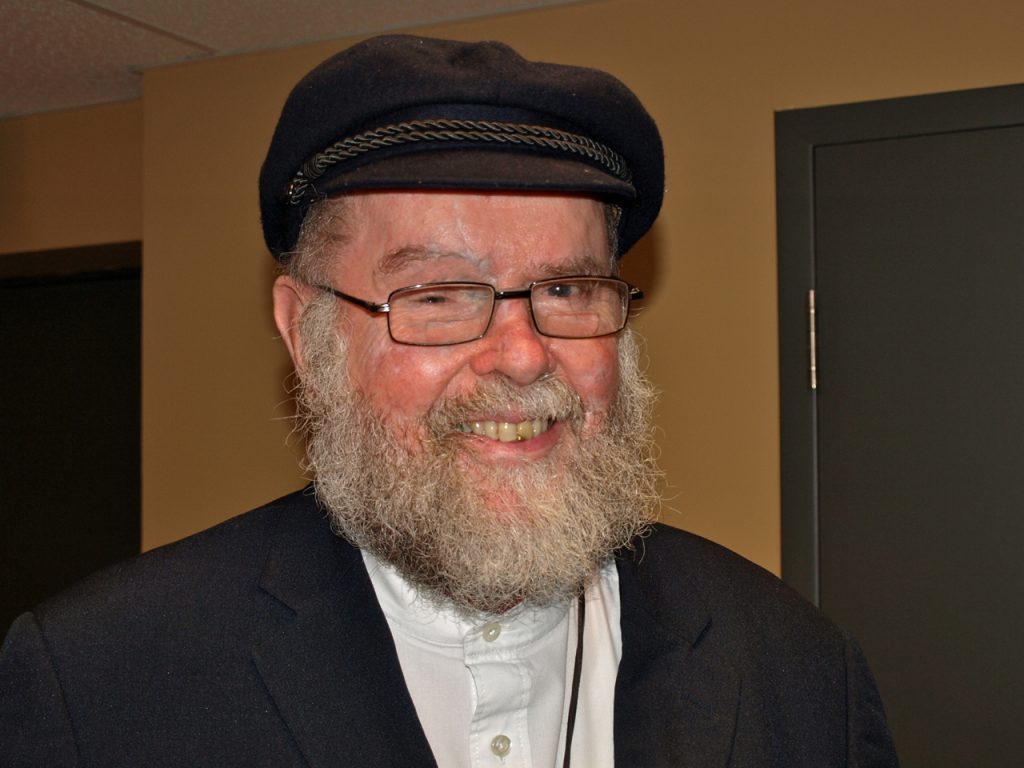
Originally from New Zealand, he moved to South Africa as a young Anglican priest at the age of 24. There he discovered the dark reality of apartheid. Horrified by the injustice of this regime, Michael Lapsley became actively involved in the fight against racial segregation. He received death threats, being considered an enemy of the apartheid regime. In exile in Lesotho, he became chaplain to the African National Congress, the political party for the defense of black rights led by Nelson Mandela.
Michael Lapsley’s activism from abroad did not go unnoticed. In 1990, in Zimbabwe, he received a letter bomb that cost him an eye and both hands. Despite this profound handicap, Michael Lapsley proved resilient and emerged from the attack more determined than ever to act for justice and peace. He returned to South Africa to testify at the Truth and Reconciliation Commission (1995-1996). From then on, he will help people affected by apartheid to overcome their traumas by talking and sharing.
This work led him, in 1998, to found the Institute for the Healing of Memories. The workshops developed by Michael Lapsley have enabled thousands of people to move forward on the path to peace and healing. They are now offered in many countries around the world. Find out more about the Memory Healing workshops here.
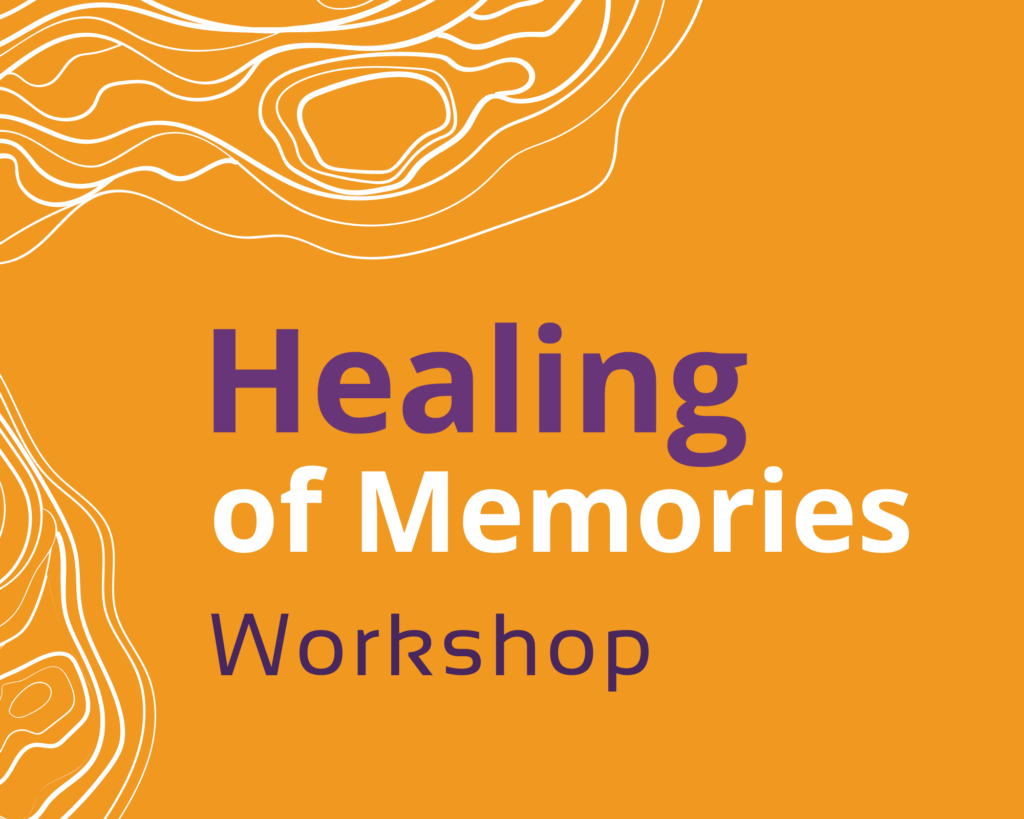
This year, the CSJR is organizing the visit of Michael Lapsley in order to offer for the first time in Quebec the workshop Healing Memories Phase II – What to do with your anger? How to overcome hatred? How to approach forgiveness? – available to participants of the last 12 Phase I workshops. Its aim is to continue the personal journey begun during the Phase I workshop.
This second workshop, already fully booked, will take place on March 23 in Trois-Rivières and will welcome 35 participants. During this visit, our 5 facilitators will also be trained by Michael Lapsley to deliver Phase II of this workshop in Quebec. He will then continue his North American tour by visiting Nunavik, the United States and Hawaii. His visit to Nunavik is scheduled for March 30 to April 5, 2024, to lead a Healing Memories workshop and several exchanges in Kuujjuaq and Salluit, in collaboration with Esuma, Inuit Values and Inuit Heath.
During his visit to Quebec, public and private events will be organized with CSJR partners. We will be announcing the program for his visit shortly. Stay tuned to attend one of our events and meet this inspiring figure, Michael Lapsley.
This project is made possible thanks to the support of the First Nations and Inuit Health Branch of Health Canada, to whom we extend our warmest thanks. Michael Lapsley will also be meeting members of First Nations and Inuit communities during this visit.
Each and every one of us has a life story to tell. And every story needs to be heard by someone. The Healing Memories workshop offers an opportunity to explore and acknowledge the emotional wounds we carry on an individual and collective level (family, community and country). We all carry a backpack full of stones, big or small, so let’s give ourselves the opportunity to lighten it.
==> More information on the workshop, by clicking here
Each of us has a story, a life journey to tell. And every story needs someone to hear it. The Healing Memories workshop provides an opportunity to explore and acknowledge the emotional wounds we carry on individual and collective levels (family, community and nation).
The actual cost of the workshop is $450 + accommodation ($235) but thanks to the financial support, we are able to offer the workshop at a reduced cost.
It is also possible to contribute according to your income. We will not refuse anyone for financial reasons.
For more information on the workshop
Translation from French to English might be possible during the workshop, but please note that a minimum of French understanding is required to participate in this workshop.
For several years now, the CSJR has been exploring different ways to address the complexity of collective trauma: a coffee chat #metoo in 2017, a meeting on indoctrination and racism in 2018, and talking circles for the expropriated people of Mirabel in 2020.
This year, funded by Fonds d’aide aux victimes d’actes criminels (FAVAC), the CSJR is developing two pilot projects to implement a restorative justice approach adapted to the specificity of collective trauma:
These pilot projects will be built according to an inductive, creative and participative methodology. Moreover, we invite participants to share their views in a spirit of co-construction according to the needs that emerged during our meetings.
Collective trauma is different from individual trauma because it is directly linked to social, political or historical structures. In order to be able to work in a restorative justice context, we consider collective trauma as the consequence of an act carried out by one or more people or institutions that directly or indirectly affects a group (e.g. expropriated people of Mirabel), or for what it represents as an identity marker (e.g. the attack on the Mosque of Quebec), chronically (e.g. feminicides) or intergenerationally (e.g. colonialism-racism).
We therefore exclude accidental events, natural climatic, geological or epidemic causes in these pilot projects.
See the video explaining restorative justice according to the CSJR (in French)
In these pilot projects, we wish to support a process of transformation of communities affected by violence by engaging the participants in a space of dialogue. We will address violence without violence, beyond polarization, stigmatization or punishment, without downplaying and minimizing its scope or consequences. We hope to develop the necessary capacities as a society to fight and act concretely, to build and (re)invent, together.
The process invites the participants into an exploratory and engaging space. It is different from a support or therapy approach. The participants put their experience at the service of the collective and transform their individual suffering into civic engagement. A process by individuals, for a new collective future. It is different from a traditional restorative justice approach.
Our vision in pictures (under construction)
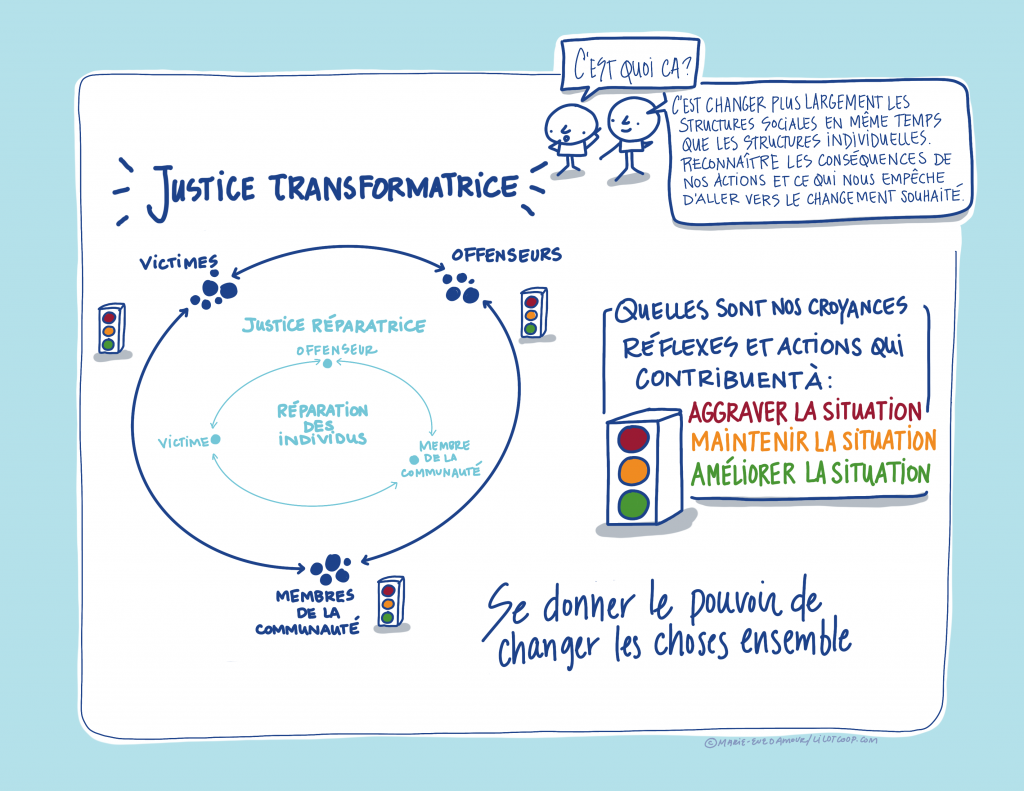
For all questions related to group trauma projects, please contact Cloé at cloedaguet@csjr.org.